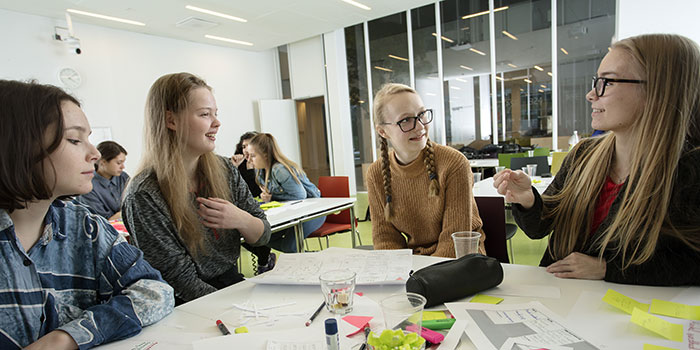A group of high school girls with a talent for the natural sciences has received hands-on mentoring in order to acquire a greater understanding of the diverse applications of IT.
A year ago, a score of high school girls with an interest in and a flair for mathematics and technology embarked on a new mentor scheme at DTU. The aim was to stimulate their interest in IT and programming, while at the same time providing them with an insight into student life at the University.
Six female students were affiliated as mentors and have since met about ten times with the high school girls. One of the mentors was master's student Teeba Al-Dulaimi. In particular, she chose to help because she recognized herself in the girls’ fumbling approach to IT as a future study and career path.
“When I was younger, I liked programming and playing with pretty colours, but I never thought of it as a real job. So I opted for chemistry and economics before becoming aware of the opportunities in IT—and subsequently changing direction. Since then, I discovered both here at DTU and through student jobs, how few women choose IT, and that as a society we miss out on many talented people,” she says.
The mentors put together a varied programme, which among other things included several visits to companies, a day in the life of a DTU student, and developing an app.
“I think we gave them a realistic and inspiring picture of the study environment and the possibilities afterwards. They were very excited to see all the practical aspects of working with IT, systems design, and new solutions developed in collaboration with customers—which requires understanding their needs and possessing business know-how,” says Teeba.
One of the participants was second-year student Eva Afzelius from Nørre Gymnasium in Copenhagen. She feels that the mentor process has given her a deeper and broader understanding of IT:
“In a way, IT is invisible. You don’t get to see what a software developer does. It was fun to be introduced to the various aspects, hear about job opportunities, and discover that IT is about far more than just programming.”
